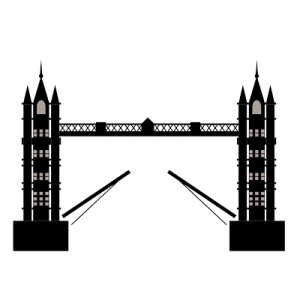Hi,
Just for your information: I found this Canadian ranking of Law Schools in Canada (obviously), and it shows that the top are, in order:
- UofT
- McGill
- Osgoode
- Ottawa
- Queens
- etc
http://www.macleans.ca/education/universities/article.jsp?content=20070917_204046_1504
I guess the guys who wrote in other posts that McGill was the best weren't very well informed...
The real ranking of Canadian Law Schools: UofT at the top
Posted Oct 16, 2007 00:21
Just for your information: I found this Canadian ranking of Law Schools in Canada (obviously), and it shows that the top are, in order:
- UofT
- McGill
- Osgoode
- Ottawa
- Queens
- etc
http://www.macleans.ca/education/universities/article.jsp?content=20070917_204046_1504
I guess the guys who wrote in other posts that McGill was the best weren't very well informed...
Posted Oct 17, 2007 16:00
Hi,
Just for your information: I found this Canadian ranking of Law Schools in Canada (obviously), and it shows that the top are, in order:
- UofT
- McGill
- Osgoode
- Ottawa
- Queens
- etc
http://www.macleans.ca/education/universities/article.jsp?content=20070917_204046_1504
I guess the guys who wrote in other posts that McGill was the best weren't very well informed...
Using Maclean's for graduate legal study purposes?
Yes, the rating system used by Macleans was incredibly accurate. It must have taken the Texas longhorn that came up with the original methodology, great insight in using three criteria to determine the quality of a school:
(1) Big Firms (ambiguous at best)
(2) SCC Clerkships (Heavily favours Francophone applicant; how is it that Courts of Appeal are not considered prestigious?)
(3) Journal Citations (Some LLM programs are paper mills, with little or no substance in the works submitted by its graduates)
Trying to use a quantitative methodology for something that is clearly qualitative in nature, is lazy and without merit.
There is a general feeling one gets concerning the quality of a law school. Unfortunately, people only get this feeling after they attend law school, and most students have too much pride to provide an unbiased opinion. At the undergraduate level, the Maclean's guide may help direct an uninformed individual about where they want to go. However, Canadian law schools accept far too many students that choose law as a default. The students don't know a direction and they wind up graduating heavily in debt and enter into saturated market.
A learned individual will usually attend a graduate school in which professors renowned in their field will help them excel. Choosing an LLM program based on the opinion of Maclean's, is simplistic, if not idiotic.
It is truly sad to see that even at the LLM level, people are persuaded by what the masses perceive as prestigious. The masses don't read academic journals and they don't employ graduate students. Why would you care what Maclean's thinks or its readers?
Just for your information: I found this Canadian ranking of Law Schools in Canada (obviously), and it shows that the top are, in order:
- UofT
- McGill
- Osgoode
- Ottawa
- Queens
- etc
http://www.macleans.ca/education/universities/article.jsp?content=20070917_204046_1504
I guess the guys who wrote in other posts that McGill was the best weren't very well informed...</blockquote>
Using Maclean's for graduate legal study purposes?
Yes, the rating system used by Macleans was incredibly accurate. It must have taken the Texas longhorn that came up with the original methodology, great insight in using three criteria to determine the quality of a school:
(1) Big Firms (ambiguous at best)
(2) SCC Clerkships (Heavily favours Francophone applicant; how is it that Courts of Appeal are not considered prestigious?)
(3) Journal Citations (Some LLM programs are paper mills, with little or no substance in the works submitted by its graduates)
Trying to use a quantitative methodology for something that is clearly qualitative in nature, is lazy and without merit.
There is a general feeling one gets concerning the quality of a law school. Unfortunately, people only get this feeling after they attend law school, and most students have too much pride to provide an unbiased opinion. At the undergraduate level, the Maclean's guide may help direct an uninformed individual about where they want to go. However, Canadian law schools accept far too many students that choose law as a default. The students don't know a direction and they wind up graduating heavily in debt and enter into saturated market.
A learned individual will usually attend a graduate school in which professors renowned in their field will help them excel. Choosing an LLM program based on the opinion of Maclean's, is simplistic, if not idiotic.
It is truly sad to see that even at the LLM level, people are persuaded by what the masses perceive as prestigious. The masses don't read academic journals and they don't employ graduate students. Why would you care what Maclean's thinks or its readers?
Posted Nov 04, 2007 06:59
Hi,
Just for your information: I found this Canadian ranking of Law Schools in Canada (obviously), and it shows that the top are, in order:
- UofT
- McGill
- Osgoode
- Ottawa
- Queens
- etc
http://www.macleans.ca/education/universities/article.jsp?content=20070917_204046_1504
I guess the guys who wrote in other posts that McGill was the best weren't very well informed...
Don't take much notice of those rankings. The method of ranking is silly. Even UT professors have criticised it - and it's to their benefit!
Just for your information: I found this Canadian ranking of Law Schools in Canada (obviously), and it shows that the top are, in order:
- UofT
- McGill
- Osgoode
- Ottawa
- Queens
- etc
http://www.macleans.ca/education/universities/article.jsp?content=20070917_204046_1504
I guess the guys who wrote in other posts that McGill was the best weren't very well informed...</blockquote>
Don't take much notice of those rankings. The method of ranking is silly. Even UT professors have criticised it - and it's to their benefit!
Posted Nov 07, 2007 04:34
lemmi ask you a question.
If U of T and mc gill are at the top, if i attend a law school, like windsor or something. would it be harder for me to find a job?
What im trying to say is that, if you go to a 'higher ranking' law school, does that better your chance of getting a job.
If U of T and mc gill are at the top, if i attend a law school, like windsor or something. would it be harder for me to find a job?
What im trying to say is that, if you go to a 'higher ranking' law school, does that better your chance of getting a job.
Posted Jan 29, 2008 19:31
I feel very much obligated to correct your rather stale cast of ranking of canadian law schools.
It will certainly take only one oblivious of the current trend in canadian legal academic realm to rank ANY canadian university above Osgoode Hall Law school. Not any of Uni of Toronto, McGill, University of British Columbia, nor any of the seeming prestigious Law schools in canada, measures up in quality and resourcefulness to OsgooDE Hall Law school.
Without speaking too much, it's apt to refer to the 2008 indubitable verdict of the Canadian Lawyer magazine on legal academic quality which ranks Osgoode Hall Law School as Canada's number one Law School.
The time is way past to confer glory on Uni of Toronto in an era where Osgoode treads legal academic with fervent zeal and inordinate proficient human and material resources.
thanks.
It will certainly take only one oblivious of the current trend in canadian legal academic realm to rank ANY canadian university above Osgoode Hall Law school. Not any of Uni of Toronto, McGill, University of British Columbia, nor any of the seeming prestigious Law schools in canada, measures up in quality and resourcefulness to OsgooDE Hall Law school.
Without speaking too much, it's apt to refer to the 2008 indubitable verdict of the Canadian Lawyer magazine on legal academic quality which ranks Osgoode Hall Law School as Canada's number one Law School.
The time is way past to confer glory on Uni of Toronto in an era where Osgoode treads legal academic with fervent zeal and inordinate proficient human and material resources.
thanks.
Posted Jan 29, 2008 23:52
The Maclean's annual ranking issue, at least for Canadian undergraduate programs, used to be based on a certain amount of statistical information contributed by the Universities themselves. Relatively recently, most of these former participants banded together and refused to assist with any future survey until the methodology was drastically improved to something approaching 'rational'.
So there's at least one grain of salt to take with anything ever produced by Maclean's.
Additionally, any ranking that doesn't put the University of Alberta as number one followed by a fifteen-way tie for dead last is obviously the product of rank incompetence and corruption.
So there's at least one grain of salt to take with anything ever produced by Maclean's.
Additionally, any ranking that doesn't put the University of Alberta as number one followed by a fifteen-way tie for dead last is obviously the product of rank incompetence and corruption.
Posted Jan 30, 2008 01:58
For what it's worth, rankings aren't as important for Canadian schools (when compared to the environment in the US). People who go to a specific law school will obviously tout the greatness of that school and bash any ranking scheme that doesn't place their school at the top. There are enough articles both supporting and criticizing the ranking system in Canada. There are even articles breaking the ranking systems down into its components so you can decide for yourself which ranking system you want to rely on.
From my personal experience, law firms are much more interested in your grades at the school you end up at. There are enough firms in each province that each school's top graduates can find work quite easily. The only thing to keep in mind is that there's more leeway accorded to graduates from the top couple of schools- for example, you can be in the top 20% at Osgoode, U of T, and McGill and still find a job quite easily but you may need to be in the top 10% to find a job if you graduated from some of the other schools.
From my personal experience, law firms are much more interested in your grades at the school you end up at. There are enough firms in each province that each school's top graduates can find work quite easily. The only thing to keep in mind is that there's more leeway accorded to graduates from the top couple of schools- for example, you can be in the top 20% at Osgoode, U of T, and McGill and still find a job quite easily but you may need to be in the top 10% to find a job if you graduated from some of the other schools.
Posted Jan 28, 2011 19:57
oh brother. Anyone who looks at McGill's programme will certainly realize that it's unique. The problem with these rankings is they compare apples and oranges. For example, the typical applicant at U of T will probably not be interested in applying for McGill's bijuridicial, bilingual programme, and the reverse may certainly be true as well. And, if we're using McGill as an example, why does it appear on the 'common law' list rather than 'civil law'? If you had to choose one-- which is at best a somewhat futile exercise in itself-- wouldn't it fit more meaningfully on the 'civil' side?
So what does it mean to say which school is 'best'? It depends on what you are looking for. At the risk of being unkind, anyone who swallows these rankings without any type of scrutiny, nuance or differentiation probably might not be the best candidate for law school anyway...
So what does it mean to say which school is 'best'? It depends on what you are looking for. At the risk of being unkind, anyone who swallows these rankings without any type of scrutiny, nuance or differentiation probably might not be the best candidate for law school anyway...
Related Law Schools
Other Related Content
LLM GUIDE Focus on Student Life: Canada
Article Dec 18, 2008
A closer look at some of Canadas chilly but exciting locations for LL.M. students
Hot Discussions
-
Cambridge LL.M. Applicants 2024-2025
Oct 30, 2024 142,434 544 -
Stanford 2024-2025
Nov 07, 2024 35,107 117 -
NUS LLM 2024-25 Cohort
Oct 25, 2024 5,863 34 -
LL.M. Scholarship Rates?
Nov 09, 2024 2,509 5 -
EU citizen barred in the US -- will an LLM from an EU school help me practice law somewhere in the EU?
Nov 15, 2024 141 4 -
NUS vs Peking
Nov 09, 2024 186 4 -
LLM in Germany 2024
Nov 09, 2024 831 4 -
Osgoode LLM - Fall 2025
Nov 21 08:35 AM 108 3





